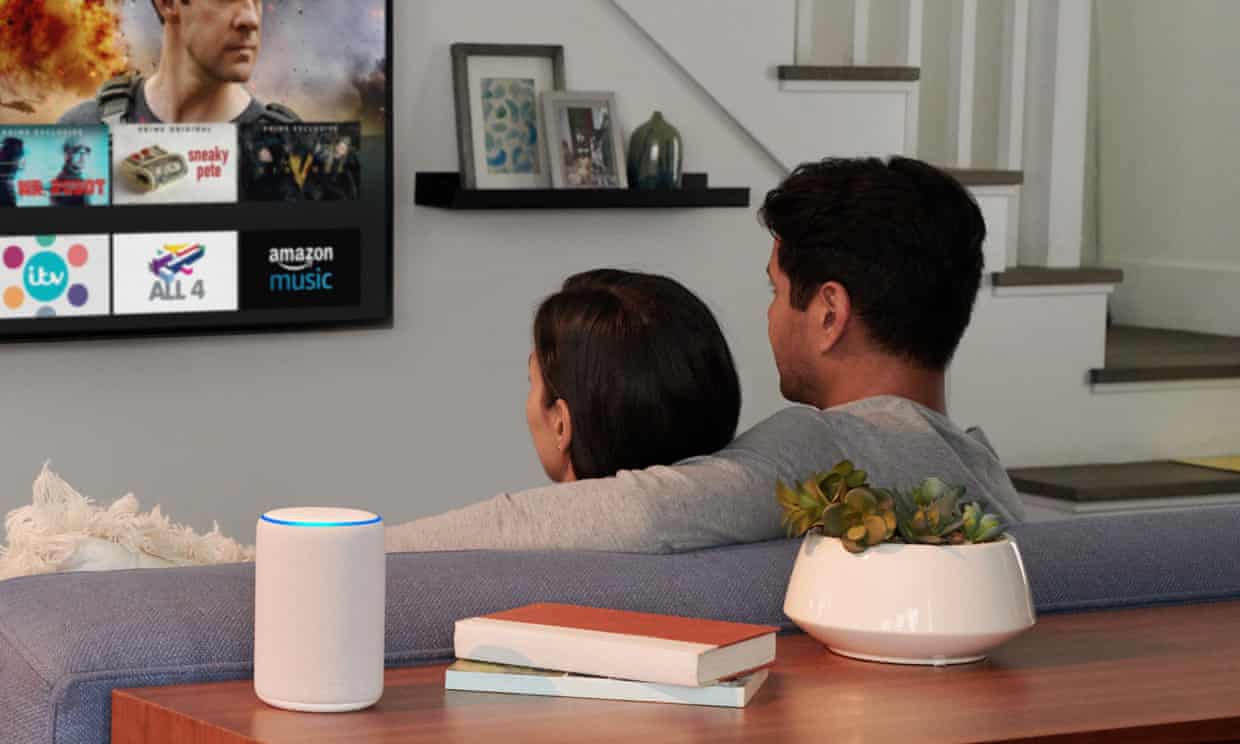
The BBC has given its new digital assistant a male voice to avoid the "problematic associations" of female-voiced rivals such as Amazon's Alexa, which have faced criticism for reinforcing gender stereotypes.
The voice-activated service, named "Beeb", will have a limited public release this week and the corporation said it put extra thought into what accent would make it distinct from other US-developed services. How to stop your smart home spying on you Read more As a result people who wake up the voice assistant by saying "Hey Beeb" will be greeted with a "warm and friendly" accent from the north of England, guiding them towards BBC programmes and offering localised news and weather reports. Andy Webb, who is leading the BBC's development of its voice technology, said this "reflected the diversity of the audience in the UK" and as a result it did not have the "sterile feel" or "problematic associations" of other assistants. A Unesco report last year claimed that the often submissive and flirty responses offered by female-voiced digital assistants to many queries – including abusive ones – reinforced ideas of women as subservient. Grace Boswood, the chief operating officer of the BBC's design and engineering department, said a key reason for undertaking the project was to defend against encroachment from US tech companies and to maintain a direct relationship with licence-fee payers. "It gives us a strategic edge if Amazon decide not to play fair in terms of how people access the content," she said, suggesting the BBC had an 18-month window of opportunity to establish a viable voice assistant before habits were locked down. "There has to be an alternative to them holding all the cards. We do have the content. Amazon may choose to change the game of discovery." She said a major fear was that tech firms may start recommending their own content using data gleaned from BBC programmes, hurting public service broadcasters: "The threat to us is, 'You've finished the Archers, here's a Joe Rogan podcast.'" Play Video 0:35 Testing Beeb: listen to the BBC's new voice assistant There is no intention for the BBC to produce its own physical hardware, such as Amazon's Echo speakers. Instead, the Beeb voice assistant has been designed in the hope that the software can be built into a variety of existing and future systems. Potential uses include powering the BBC Sounds app, adding extra controls to car stereos, and potentially even operating on Amazon's platform. However, as yet the only deal signed has been with Microsoft, which will launch the service to desktop-based beta testers on Wednesday. The success or failure of the service, which relies on Microsoft's AI software, is likely depend on whether the BBC can convince other platforms to incorporate Beeb into their offering. The Beeb voice assistant will have a much more limited set of functions than other rivals but the intention is that it will be better at providing access to BBC content, while offering up jokes from the Mash Report and facts from QI. People who swear at the assistant will be asked if they would like to listen to a BBC podcast. Sign up to the Media Briefing: news for the news-makers Read more The fear within the BBC is that if it cedes control of both the user experience and user data to Amazon and Google then the UK's national broadcaster will be left playing second fiddle to tech companies in yet another area. At least one in five British homes now has a smart speaker, according to Ofcom, driven by cheap sales of kit such as Amazon's Echo and Google's Assistant. This is causing listening habits to change as people replace old radios that were permanently tuned to existing stations with voice-activated kit. There is already concerns that the BBC and other public service broadcasters have lost their prominence on television sets, with owners of modern smart TVs being offered a choice of apps from the likes of Netflix and Amazon when they turn on their sets rather than going to BBC One by default. Topics BBC Television Amazon Alexa Apple Amazon Smart speakers news Share on Facebook Share on Twitter Share via Email Share on LinkedIn Share on Pinterest Share on WhatsApp Share on Messenger Reuse this content

0 comments:
Post a Comment